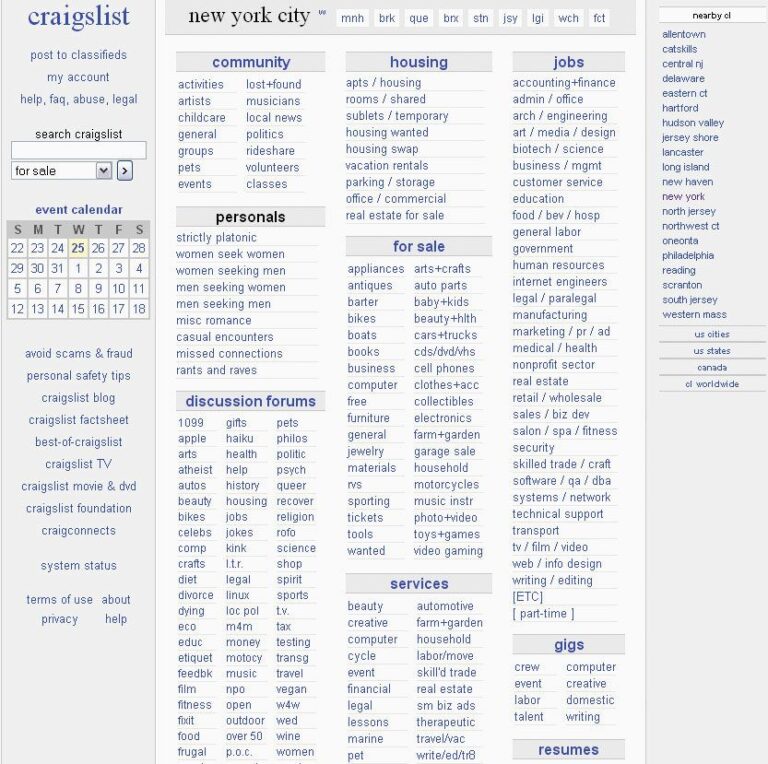Swift Sleeper Trucks For Sale: Your Comprehensive Guide to Smart Investments
Swift Sleeper Trucks For Sale: Your Comprehensive Guide to Smart Investments cars.truckstrend.com
The open road beckons, and for owner-operators, small fleet owners, or aspiring entrepreneurs in the trucking industry, finding the right rig is paramount. While brand new trucks come with hefty price tags, the market for pre-owned commercial vehicles offers compelling alternatives. Among these, "Swift Sleeper Trucks For Sale" represent a unique and often advantageous segment. This comprehensive guide will delve into what these trucks are, why they might be an excellent investment, and how to navigate the purchasing process effectively.
It’s crucial to clarify from the outset: "Swift" is not a truck manufacturer. Rather, it refers to Swift Transportation, one of North America’s largest and most prominent truckload carriers. Consequently, "Swift Sleeper Trucks For Sale" are typically heavy-duty, Class 8 sleeper trucks that were formerly part of Swift Transportation’s vast fleet and are now being sold to the public. These trucks, often Freightliner Cascadias, Kenworth T680s, or Peterbilt 579s, are known for their rigorous fleet maintenance, standardized specifications, and often competitive pricing, making them an attractive option for those seeking reliability and value in the used truck market.
Swift Sleeper Trucks For Sale: Your Comprehensive Guide to Smart Investments
Understanding Swift Sleeper Trucks
Swift Transportation operates an enormous fleet, constantly rotating out older models to bring in newer, more fuel-efficient vehicles. This consistent turnover means a steady supply of well-maintained, used trucks enters the market. What sets a "Swift truck" apart from other used trucks?
- Fleet Maintenance Protocols: Swift, like other large carriers, adheres to strict preventive maintenance schedules. Trucks are serviced regularly, often in-house, by certified technicians. This means fluid changes, inspections, and necessary repairs are typically performed on time, extending the life of components.
- Standardized Specifications: Fleet trucks are often spec’d for optimal fuel efficiency and long-haul comfort. You’ll typically find aerodynamic designs, efficient engines (like Detroit DD15, Cummins X15, or PACCAR MX-13), automated manual transmissions (AMTs) like Detroit DT12 or Eaton Fuller Endurant, and comfortable sleeper cabs designed for over-the-road living.
- High Mileage, Predominantly Highway: While these trucks often come with high mileage readings (300,000 to 700,000+ miles), a significant portion of these are highway miles, which are generally less taxing on a truck’s drivetrain than stop-and-go city driving.
- Common Models: You’ll frequently encounter popular models like the Freightliner Cascadia, Kenworth T680, and Peterbilt 579, which are industry workhorses known for their reliability and availability of parts.

Benefits of Buying a Used Swift Sleeper Truck
The decision to purchase a pre-owned fleet truck, especially one from a major carrier like Swift, comes with several distinct advantages:
- Significant Cost Savings: The most apparent benefit is the lower acquisition cost compared to a new truck. This allows owner-operators to get on the road faster without the burden of a massive new vehicle loan.
- Proven Reliability & Documented History: Due to stringent maintenance programs, these trucks often have detailed service records. This transparency allows buyers to assess the truck’s history and potential future needs, providing peace of mind often absent in private sales.
- Standardized Features & Amenities: Swift trucks are typically well-equipped for long-haul operations, often including amenities like refrigerators, inverters, and ample storage, making them ready for the road from day one.
- Depreciation Advantage: The steepest depreciation hit on a new truck occurs in its first few years. By purchasing a used Swift truck, you avoid this initial rapid depreciation, making your investment more stable.
- Ready Availability: Swift’s regular fleet turnover ensures a consistent supply of these trucks on the market, offering buyers a wider selection to choose from.

Key Considerations Before Purchase

While the benefits are compelling, a smart purchase requires thorough due diligence. Here’s what to consider:
- Maintenance Records are Gold: Request and scrutinize all available service history. Look for consistent oil changes, preventative maintenance schedules, and records of major component replacements (engine, transmission, differential, turbo, DPF).
- Pre-Purchase Inspection (PPI): This is non-negotiable. Hire an independent, certified heavy-duty truck mechanic to perform a comprehensive inspection. This should include engine diagnostics (checking fault codes, oil pressure, blow-by), transmission checks, differential fluid checks, chassis inspection, tire and brake condition, and a thorough inspection of the emissions system (DPF, DEF, EGR).
- Engine & Drivetrain Health: Inquire about the last major engine overhaul (if any) or any significant repairs. Understand the common issues for the specific engine model (e.g., Detroit DD15, Cummins X15, PACCAR MX-13) and check if those have been addressed.
- Sleeper Interior & Amenities: Assess the condition of the bunk, mattress, storage, HVAC system, and any installed appliances (refrigerator, microwave, inverter). While minor cosmetic wear is expected, ensure everything is functional.
- Tires & Brakes: These are significant expenses. Check tire tread depth and condition (look for uneven wear). Inspect brake lining thickness and drum/rotor condition.
- Emissions System: The Diesel Particulate Filter (DPF), Selective Catalytic Reduction (SCR) with Diesel Exhaust Fluid (DEF), and Exhaust Gas Recirculation (EGR) systems are common points of failure in modern trucks. Ensure these systems are functioning correctly and have been properly maintained.
- Warranty Options: Some dealers offer third-party extended warranties for used trucks. While these add to the cost, they can provide peace of mind for major component failures. Evaluate the coverage and deductible carefully.
Where to Find Swift Sleeper Trucks For Sale
Finding these trucks is relatively straightforward due to Swift’s consistent sales channels:
- Swift Transportation’s Own Sales Divisions: Swift often sells directly to the public through dedicated sales websites or specific dealer partnerships. Check their official channels first.
- Large Commercial Truck Dealerships: Major dealerships (Freightliner, Kenworth, Peterbilt, Volvo, Mack) often acquire fleet trade-ins, including Swift trucks.
- Online Marketplaces: Websites like TruckPaper.com, CommercialTruckTrader.com, MyLittleSalesman.com, and TruckerToTrucker.com are excellent resources. Use filters to search by make, model, year, and often by previous fleet owner if specified.
- Commercial Truck Auctions: Reputable auction houses like Ritchie Bros. Auctioneers and IronPlanet often feature large batches of fleet trucks. Be cautious with auctions, as "as-is" sales are common, making the PPI even more crucial.
The Buying Process: A Step-by-Step Guide
Navigating the purchase of a used Swift sleeper truck involves several key steps:
- Define Your Needs & Budget: Determine your hauling requirements (type of freight, routes), desired features, and a realistic budget, including acquisition cost, financing, insurance, and initial maintenance.
- Research & Shortlist: Use online resources to identify potential trucks that meet your criteria. Compare prices, mileage, and specifications across different listings.
- Request Information & Records: Contact sellers and request detailed photos, specifications, and, most importantly, complete maintenance records. A seller unwilling to provide records is a red flag.
- Schedule Inspection: Once you’ve narrowed down your choices, arrange for a professional pre-purchase inspection by an independent mechanic. Ideally, this mechanic specializes in the truck’s specific make and engine.
- Negotiate Price: Based on your research, the inspection report, and the truck’s condition, negotiate the price. Be prepared to walk away if the deal isn’t right.
- Secure Financing (If Needed): Explore financing options with specialized commercial truck lenders. They understand the nuances of used truck loans better than traditional banks.
- Complete Paperwork: Ensure all titles, bills of sale, and transfer documents are properly executed and notarized. Verify the VIN matches all paperwork.
- Insurance & Licensing: Arrange for commercial truck insurance and handle all necessary licensing and registration with your state’s Department of Motor Vehicles.
Tips for a Successful Purchase
- Don’t Rush: Take your time to find the right truck. A hasty decision can lead to costly regrets.
- Budget for Post-Purchase Maintenance: Even with good maintenance records, anticipate some immediate post-purchase expenses for fluids, filters, and possibly tires or minor repairs. Factor this into your overall budget.
- Understand "Fleet Spec": While efficient, some fleet trucks might have fewer bells and whistles than owner-operator customized rigs. Understand what you’re getting.
- Verify VIN: Double-check the Vehicle Identification Number on all documents against the actual truck.
- Consider Resale Value: While you’re buying used, think about the truck’s future resale potential when making your choice.
Potential Challenges and Solutions
- High Mileage:
- Challenge: Many Swift trucks have high mileage, which can deter some buyers.
- Solution: Focus on maintenance history. A well-maintained 600,000-mile truck is often a better investment than a poorly maintained 300,000-mile one. The quality of the miles (highway vs. city) also matters.
- Wear and Tear:
- Challenge: Commercial trucks endure significant wear and tear.
- Solution: A thorough PPI will identify major issues. Budget for cosmetic fixes and minor component replacements (e.g., worn interior parts, lights, small leaks).
- Emissions System Issues:
- Challenge: DPF, DEF, and EGR systems can be expensive to repair or replace.
- Solution: Ensure the PPI specifically checks these systems. Ask about recent DPF cleanings or SCR system maintenance. Consider trucks that have had these components recently serviced or replaced.
- Financing Used Trucks:
- Challenge: Securing financing for older, high-mileage trucks can be harder with traditional lenders.
- Solution: Work with commercial truck financing specialists who understand the industry and the value of these assets.
Swift Sleeper Trucks For Sale: Estimated Price Guide
Please note: Prices are highly variable based on model year, mileage, condition, engine type, transmission, and market demand. This table provides illustrative ranges for common models typically found in Swift’s fleet.
| Model | Model Year Range | Typical Mileage Range | Engine Type | HP Range | Transmission | Sleeper Size | Estimated Price Range (USD) | Key Features |
|---|---|---|---|---|---|---|---|---|
| Freightliner Cascadia Evolution/New Cascadia | 2016-2021 | 400,000 – 700,000+ | Detroit DD15 | 400-505 | DT12 AMT | 72" Raised Roof | $30,000 – $80,000 | Aerodynamic design, Detroit Assurance safety suite (newer models), spacious interior, fuel-efficient. |
| Kenworth T680 | 2016-2021 | 350,000 – 650,000+ | PACCAR MX-13 / Cummins X15 | 400-500 | Eaton Fuller AMT | 76" Aerocab | $35,000 – $85,000 | Driver comfort, quiet cab, good resale value, often well-appointed interiors. |
| Peterbilt 579 | 2016-2021 | 350,000 – 650,000+ | PACCAR MX-13 / Cummins X15 | 400-500 | Eaton Fuller AMT | 80" Ultraloft / 72" Hi-Roof | $40,000 – $90,000 | Premium interior, classic Peterbilt styling, good driver ergonomics, often higher spec. |
Disclaimer: These prices are estimates only and can fluctuate significantly based on individual truck condition, maintenance history, specific features, current market conditions, and regional variations.
Frequently Asked Questions (FAQ)
- Q: Are Swift trucks reliable despite high mileage?
- A: Generally, yes. Swift’s rigorous preventive maintenance programs ensure their trucks are well-maintained throughout their service life. Focus on documented service history rather than just mileage.
- Q: What’s the typical mileage on a Swift truck for sale?
- A: Most used Swift sleeper trucks will have mileage ranging from 300,000 to over 700,000 miles. These are predominantly highway miles, which are less stressful on the truck than city driving.
- Q: Do Swift trucks come with a warranty?
- A: When purchased directly from Swift’s sales channels or reputable dealers, some trucks may come with a limited powertrain warranty or options for purchasing an extended aftermarket warranty. Always clarify warranty terms before purchase.
- Q: Can I finance a used Swift truck?
- A: Yes, financing is available. It’s often best to work with commercial truck financing companies that specialize in used equipment, as they understand the asset better than traditional banks.
- Q: What should I look for during an inspection of a Swift truck?
- A: Pay close attention to the engine (oil pressure, blow-by, fault codes), transmission operation, differential, tire condition, brake life, and the functionality of the emissions system (DPF, DEF, EGR). Always get a professional pre-purchase inspection.
- Q: Are parts readily available for these common fleet models?
- A: Absolutely. Freightliner Cascadias, Kenworth T680s, and Peterbilt 579s are among the most popular trucks on the road, meaning parts are widely available at dealerships and aftermarket suppliers across North America.
- Q: Why does Swift sell so many trucks?
- A: Large carriers like Swift regularly rotate their fleets to maintain a modern, fuel-efficient lineup and to avoid excessive maintenance costs associated with very high-mileage vehicles. This creates a consistent supply of used trucks for the market.
Conclusion
For those entering the demanding world of long-haul trucking or looking to expand an existing fleet without the prohibitive cost of new equipment, "Swift Sleeper Trucks For Sale" present a compelling opportunity. Their history of professional maintenance, standardized features, and competitive pricing make them a smart investment. However, like any significant purchase, success hinges on thorough research, meticulous inspection, and a clear understanding of the buying process. By exercising due diligence and leveraging the practical advice outlined in this guide, you can confidently acquire a reliable Swift sleeper truck that serves as a solid foundation for your trucking endeavors, helping you navigate the open road with efficiency and peace of mind.






